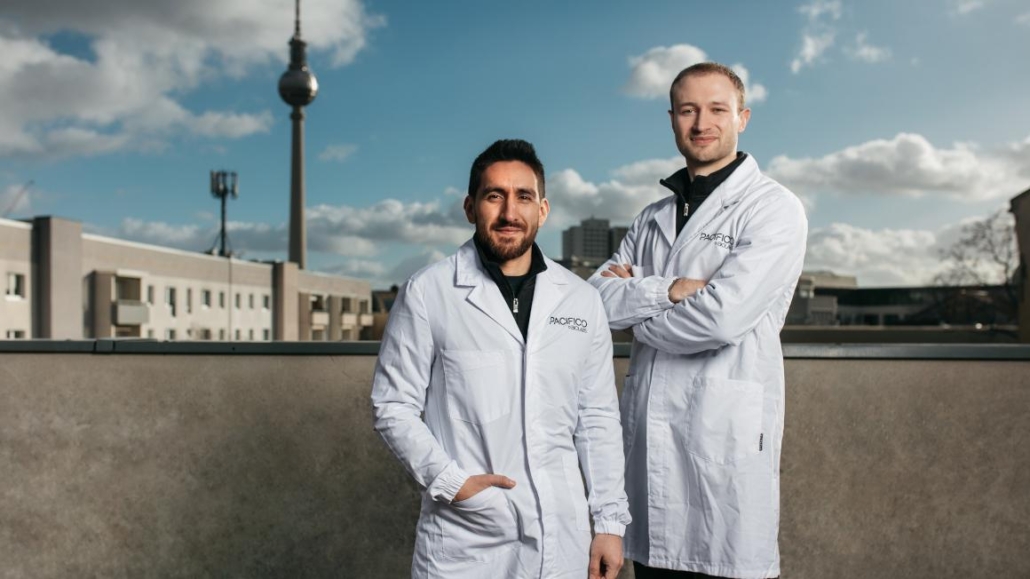
Pacifico Biolabs raises US$3.3m in pre-seed round
German foodtech start-up Pacifico Biolabs has raised US$3.3m to push the development of healthy animal-free, carbon-neutrally produced fish and seafood.
Riding the wave of mushroom mycelium-based foods, which are advertised as a climate- and animal-friendly alternative to meat, Pacifico Biolabs GmbH (Leipzig/Berlin) has raised pre-seed financing of USD 3.3 million. The pre-seed financing round was led by foodtech venture capital investors Simon Capital and FoodLabs, with participation from Exceptional Ventures and Sprout & About Ventures.
Unlike precision fermentation, the foodtech company founded by Washington Logroño (photo, left) and Zac Austin propagates mushroom biomass. More precisely, the roots or vegetative form of the mushrooms, the protein-rich mycelium, in order to process it into animal-free fish products and seafood. Fermentation in brewing kettles frees up agricultural land that would otherwise be used for the cultivation of animal feed. Globally, livestock farming contributes to around 20% of annual global greenhouse gas emissions.
The company will use the proceeds to scale-up its fermentation technology, hire staff and launch its first products. ” “Our technology was developed with the goal of solving many of the challenges faced by both plant-based and fermentation companies in the alternative protein space,” says CEO Zac Austin.
Successful cost-effective scaling of energy-consuming fermentation technology will determine the product price and therefore the competitiveness of the products. Current calculations by the Good Food Institute Europe show that the market displacement of conventionally produced meat by products from protein fermentation could free up a third of agricultural land by 2050. However, companies will still have to work hard on consumer acceptance of the new products, which is dominated by price and flavour. According to a survey published in February by the EIT Health Food Observatory, more than half (54%) of the 9,700 respondents from across Europe and Israel consider fermentation products to be ultra-processed foods that are harmful to health.
Translated with DeepL.com (free version)




 Freepik.com
Freepik.com